Vue normale
-
NYT > World News
-
Razia Jan, 81, Who Built an Enduring Girls’ School in Afghanistan, Dies
Before 9/11, she ran a dry cleaning business in Massachusetts; in the aftermath, she returned home after decades away to educate young girls.
-
Euromaidan Press
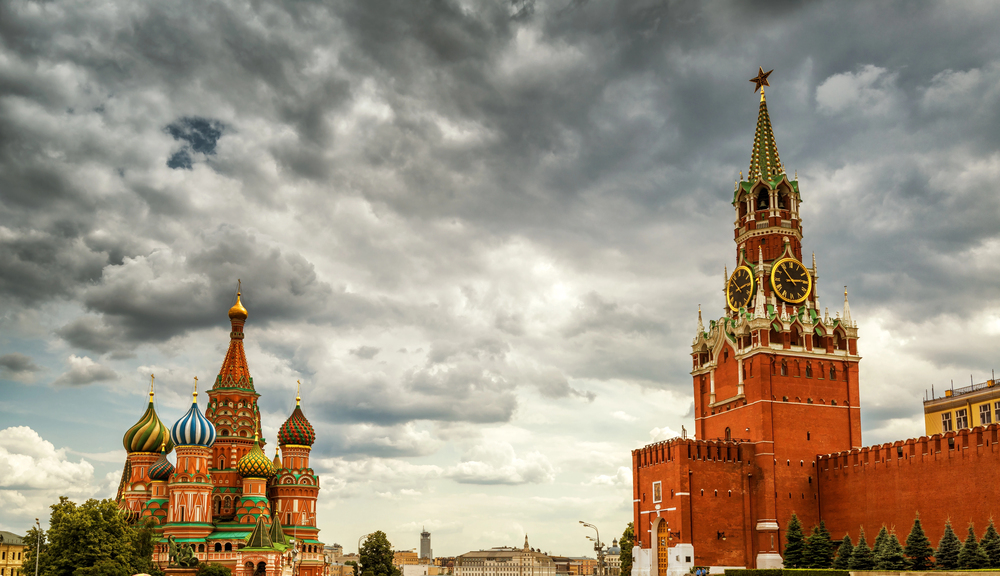
-
HUR: Kremlin’s drive to reabsorb former Soviet states threatens freedom across Eurasia
Russia threatens not only Ukraine. The Kremlin’s imperial ambitions also target Moldova, Georgia, Kazakhstan, and Azerbaijan, Ukraine’s Defense Intelligence reports. During the Soviet era, Kazakhstan, Moldova, Azerbaijan, and Georgia were under Moscow’s control and subjected to centralized governance. The Kremlin wants to unify all of these countries into one fellow state. Ukraine defends the freedom and choice of nations Andriy Yusov, a representative of the Ukrainian Defense Intelligence
HUR: Kremlin’s drive to reabsorb former Soviet states threatens freedom across Eurasia

Russia threatens not only Ukraine. The Kremlin’s imperial ambitions also target Moldova, Georgia, Kazakhstan, and Azerbaijan, Ukraine’s Defense Intelligence reports.
During the Soviet era, Kazakhstan, Moldova, Azerbaijan, and Georgia were under Moscow’s control and subjected to centralized governance. The Kremlin wants to unify all of these countries into one fellow state.
Ukraine defends the freedom and choice of nations
Andriy Yusov, a representative of the Ukrainian Defense Intelligence, states that Russia’s war against Ukraine is not only a struggle for Ukrainian independence but also a fight for the right of all peoples to live freely and choose their own path.
“Ukraine defends the idea of integration into the European Union and pays a high, heavy price for it,” Yusov says, highlighting the European and democratic dimension of the conflict.
The Kremlin’s imperial ambitions — a regional threat
Yusov warns that Russia’s imperial ambitions pose a danger not only to Ukraine but also to neighboring states: Moldova, Georgia, Kazakhstan, and Azerbaijan. Historical parallels and the Kremlin’s current policies indicate a desire to expand influence and control over its neighbors.
“Every missile, every drone destroyed by Ukrainians during the Russian aggression means that this arsenal will not be used against any peaceful country,” he adds.
Azerbaijan is at the forefront of the fight against Russian imperialism
The intelligence representative highly praised Azerbaijan’s position, which actively opposes Russian imperialism and demonstrates the capability to give a worthy response to aggressors.
Ukrainian-Azerbaijani relations significantly improved in 2024–2025 following a series of aggressive actions by Russia. In December 2024, Russian forces shot down an Azerbaijani aircraft near Grozny, killing 38 passengers. Shortly afterward, Russia launched raids on its territory, resulting in the deaths of two Azerbaijani citizens. In response, Baku began openly strengthening ties with Kyiv.
This is an important signal for the entire region that free countries are ready to unite in resisting the common threat.
-
Euromaidan Press

-
With infrastructure in ruins and winter ahead, Ukraine finds gas power where Russia once ruled
Amid Russian missile strikes and a gas war, Ukraine has taken its first step toward strategic energy retaliation. Ukraine’s national energy company Naftogaz has announced it has signed its first agreement for the supply of Azerbaijani gas with the state-owned company SOCAR. Ukrainian-Azerbaijani relations significantly improved in 2024–2025 following a series of aggressive actions by Russia. In December 2024, Russian forces shot down an Azerbaijani aircraft near Grozny, killing 38 passengers. S
With infrastructure in ruins and winter ahead, Ukraine finds gas power where Russia once ruled

Amid Russian missile strikes and a gas war, Ukraine has taken its first step toward strategic energy retaliation. Ukraine’s national energy company Naftogaz has announced it has signed its first agreement for the supply of Azerbaijani gas with the state-owned company SOCAR.
Ukrainian-Azerbaijani relations significantly improved in 2024–2025 following a series of aggressive actions by Russia. In December 2024, Russian forces shot down an Azerbaijani aircraft near Grozny, killing 38 passengers. Shortly afterward, Russia launched raids on its territory, resulting in the deaths of two Azerbaijani citizens. In response, Baku began openly strengthening ties with Kyiv. During the Soviet era, Armenia, Azerbaijan, and Georgia were under Moscow’s control and subjected to centralized governance.
Transit via the Balkans
The first gas test delivery was carried out through the Trans-Balkan corridor, which runs from the Bulgarian—Romanian—Ukrainian border.
“This is a small-volume but strategically important step that paves the way for long-term cooperation. It’s also another example of diversifying supply sources and strengthening Ukraine’s energy security,” says Serhiy Koretskyi, CEO of Naftogaz.
Imports to replace war-damaged supplies
Due to Russian strikes on gas infrastructure, Ukraine is forced this year to import a significant volume of gas from Europe. According to former Energy Minister Herman Halushchenko, at least 4.6 billion cubic meters of imported gas must be injected into underground storage facilities. As of June, 2.9 billion cubic meters had already been contracted.
A new route through Greece, Bulgaria, Romania, and Moldova was launched in May, opening another window of opportunity for Ukraine.
A regional energy heavyweight
SOCAR operates actively in Türkiye, Romania, Georgia, Switzerland, and Ukraine, where its subsidiary SOCAR Energy Ukraine runs one of the country’s largest premium gas station networks.
The company is involved in strategic projects supplying Caspian gas to Europe, particularly via the TANAP and TAP pipelines.
Read also
-
“Most valuable thing we have”: Ukrainian journalist gifts military chevrons to Azerbaijan president Aliyev
-
Ukraine’s Intelligence: Moscow accelerates its troop buildup in Armenia as tensions with Azerbaijan rise
-
Editor and director of Sputnik Azerbaijan detained in police raid as suspected Russian spies
-
As Russian troops leave Armenia, Moscow’s revenge playbook emerges
-
NYT > U.S. News

-
Justice Dept. Officials File Suit, Saying They Were Dismissed Unlawfully
The lawsuit argues that employees who were fired for political reasons have no recourse, after President Trump neutralized a board that handles federal labor disputes.
Justice Dept. Officials File Suit, Saying They Were Dismissed Unlawfully

© Jason Andrew for The New York Times
-
Euromaidan Press
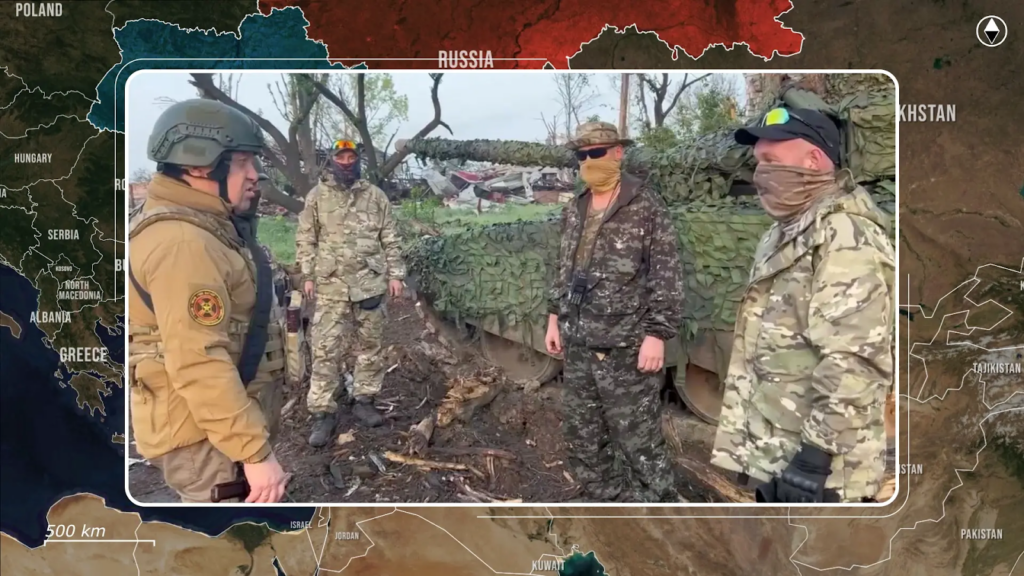
-
Frontline report: Azerbaijan arrests Wagner fighters as war criminals, breaking post-Soviet precedent
Day 1243 On 20 July, the biggest news comes from Azerbaijan. Here, the government has arrested Wagner fighters who fought for Russia in Ukraine, directly targeting the Kremlin’s most dangerous organization. It is a bold move that does not just reject Russian influence in the South Caucasus but actively begins to dismantle Moscow’s entire post-Soviet power network. A screenshot from the RFU News – Reporting from Ukraine YouTube video, 20 July. This is the first time a post-Soviet country has
Frontline report: Azerbaijan arrests Wagner fighters as war criminals, breaking post-Soviet precedent

Day 1243
On 20 July, the biggest news comes from Azerbaijan.
Here, the government has arrested Wagner fighters who fought for Russia in Ukraine, directly targeting the Kremlin’s most dangerous organization. It is a bold move that does not just reject Russian influence in the South Caucasus but actively begins to dismantle Moscow’s entire post-Soviet power network.
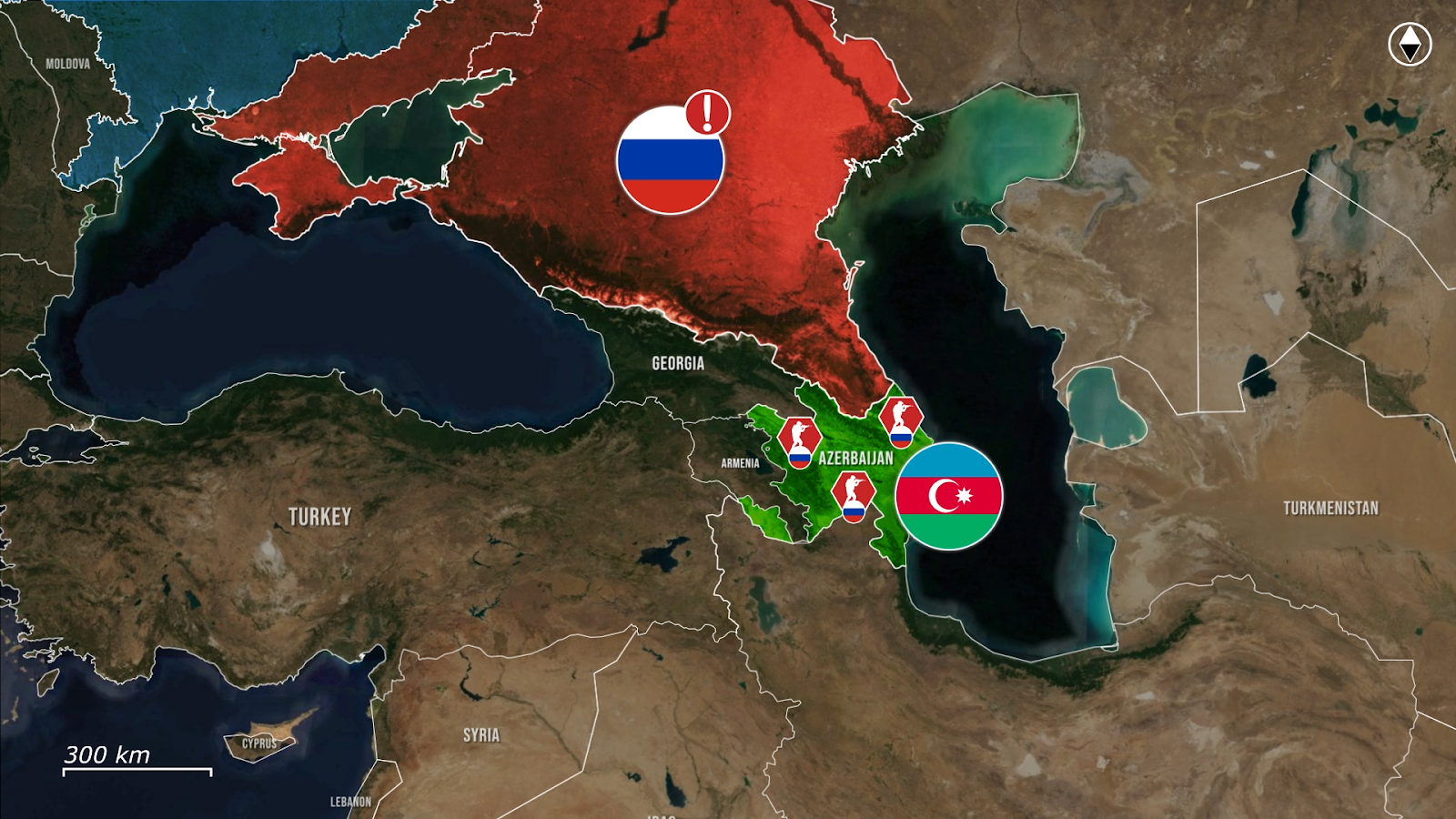
This is the first time a post-Soviet country has prosecuted its citizens for joining Wagner. The first two mercenaries, Ramil Aliyev and Ismayil Hasanov, had both served time in Russian penal colonies before being recruited into Wagner under Prigozhin’s Project-K and sent to fight in Ukraine. Both men had served time in Russian penal colonies before being recruited under Wagner’s Project-K, a prison pipeline organized by Yevgeny Prigozhin to fuel Russia’s war in Ukraine. The two Azerbaijanis are accused of using firearms and explosives in Ukraine, as well as attempting to recruit others to fight for Wagner.
A court in Baku ordered them detained, applying criminal statutes typically used for mercenary or terror-related offenses. These charges go beyond domestic law; they are a warning to all former Wagner fighters: they will be treated not as veterans, but as war criminals.
The decision to prosecute Wagner fighters comes as part of a broader shift in Azerbaijan’s posture toward Moscow. Rather than quietly distance itself, Baku is now actively targeting Russian influence across multiple fronts: military, political, and informational. The arrests are not just about justice or legality, they are about cutting off Russian leverage. Project-K was one of Wager’s most controversial efforts, blending criminality with state-backed warfare. By going after these individuals now, Azerbaijan is effectively retroactively criminalizing its citizens’ involvement in Russia’s proxy structure.
This legal offensive follows Baku’s decision to label Sputnik-Azerbaijan a Russian intelligence front, accusing its staff of running information warfare campaigns and building pro-Kremlin influence networks inside the country.
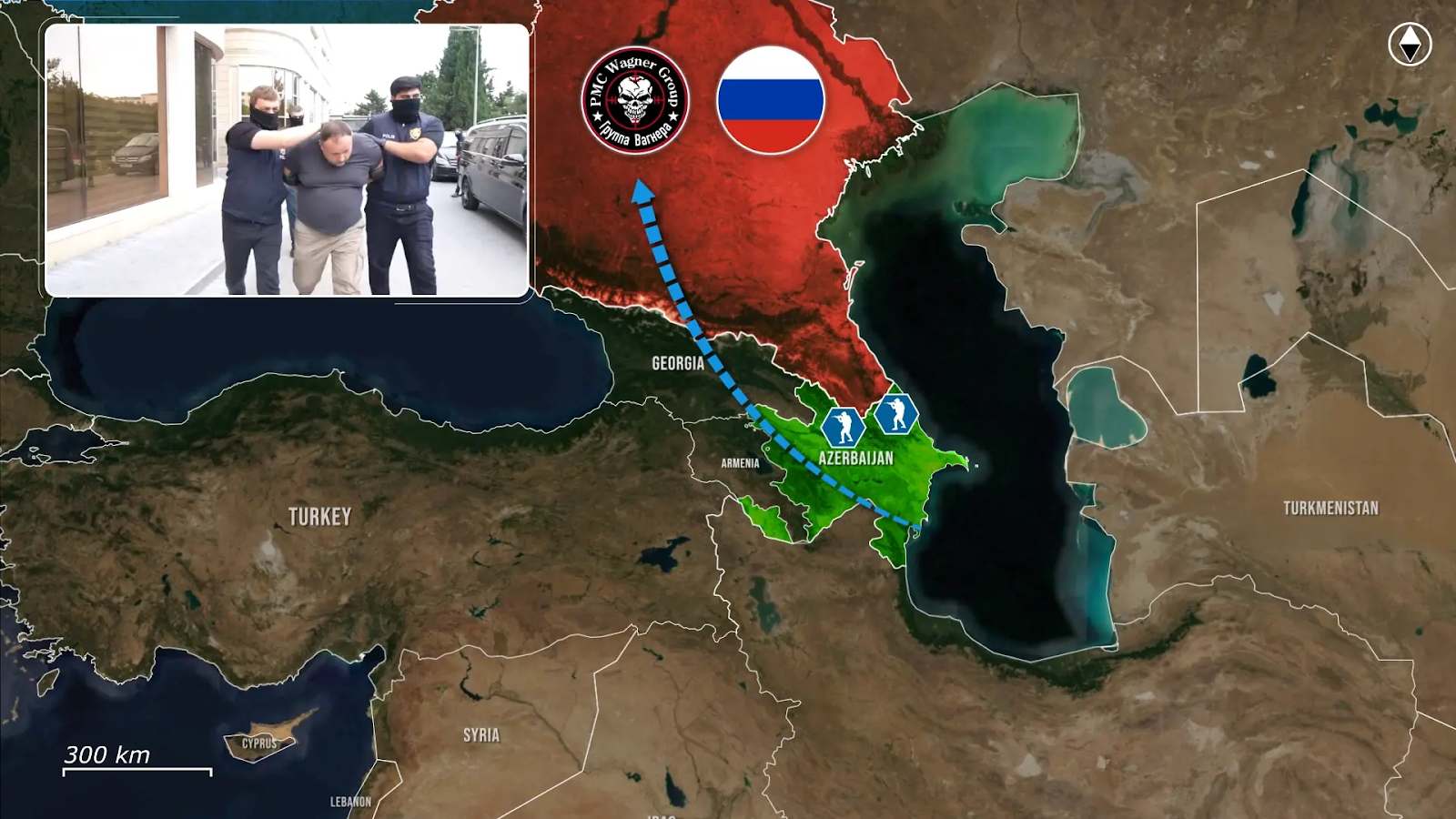
While that episode focused on soft power, the Wagner arrests are something different: they mark the beginning of hard legal action against Russian hybrid operatives on Azerbaijani soil. No other country in the region has drawn such a hard legal line, making this a precedent-setting moment.
Diplomatic tensions have escalated in parallel, when a Russian delegation led by Emergency Situations Minister Aleksandr Kurenkov visited Baku in July carrying a diplomatic message from Vladimir Putin, President Illham Aliyev refused to meet them. That snub was deliberate and deeply symbolic, in the post-Soviet space, as Russia has traditionally relied on in-person meetings and backchannel diplomacy to maintain leverage.
But this time, Azerbaijan shut the door; the refusal to receive Putin’s envoy suggests that Baku no longer sees Russian diplomacy as useful or necessary. It also signals that Azerbaijan is prepared to let relations deteriorate further if Moscow keeps pushing.
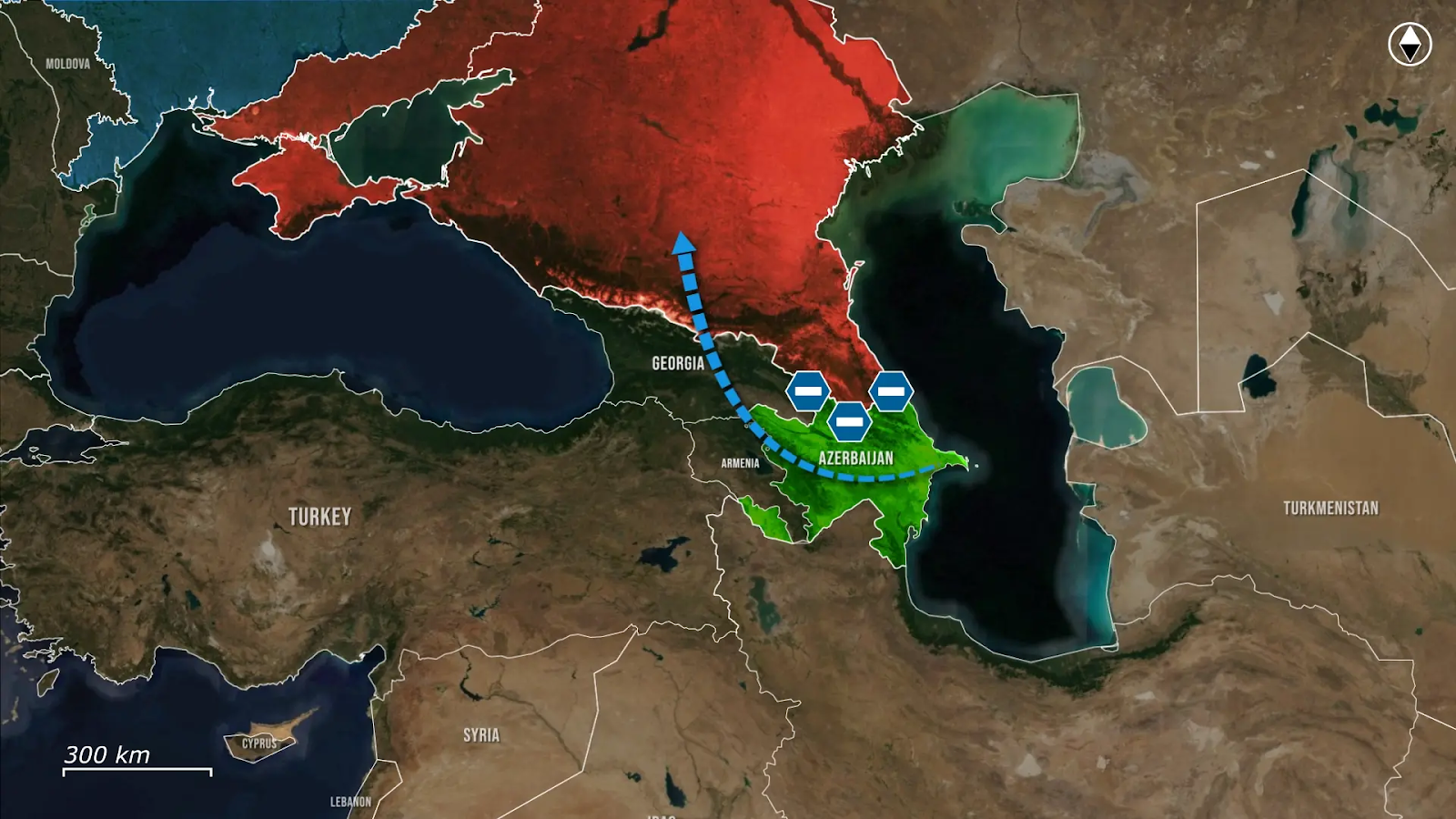
In the meantime, Azerbaijan is strengthening ties with Ukraine in both practical and symbolic ways. Baku recently sent specialized demining equipment to Ukrainian forces, support that may appear modest on paper, but carries real strategic weight. It directly contributes to Ukraine’s ability to clear liberated areas, protect civilians, and prepare for counteroffensive operations. Azerbaijan is openly siding with Ukraine on key security issues, while simultaneously targeting Russia’s covert networks at home. And it is doing so without Western prompting, showing that Russia’s isolation is becoming self-reinforcing.
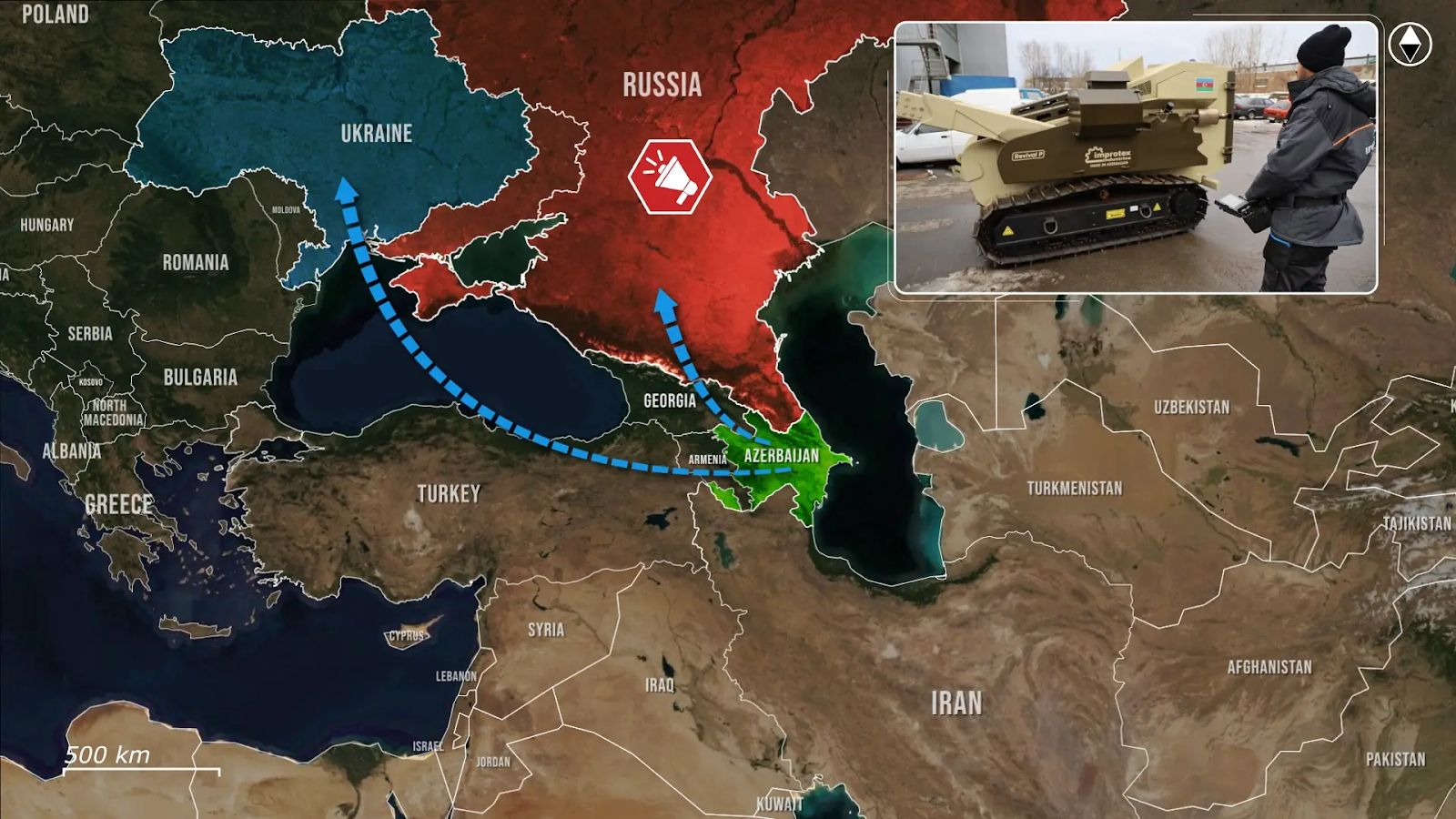
Behind all of this lies a deeper shift; Azerbaijan is no longer trying to balance between East and West. It is picking sides, and doing so with surgical precision. The prosecutions, media clampdown, and diplomatic snubs are part of a coherent policy aimed at dismantling Russia’s influence in the South Caucasus. For Moscow, this is not just a diplomatic headache; it is a strategic defeat, its once loyal partner is now helping Ukraine, rejecting backchannel envoys, and arresting Wagner fighters as criminals.
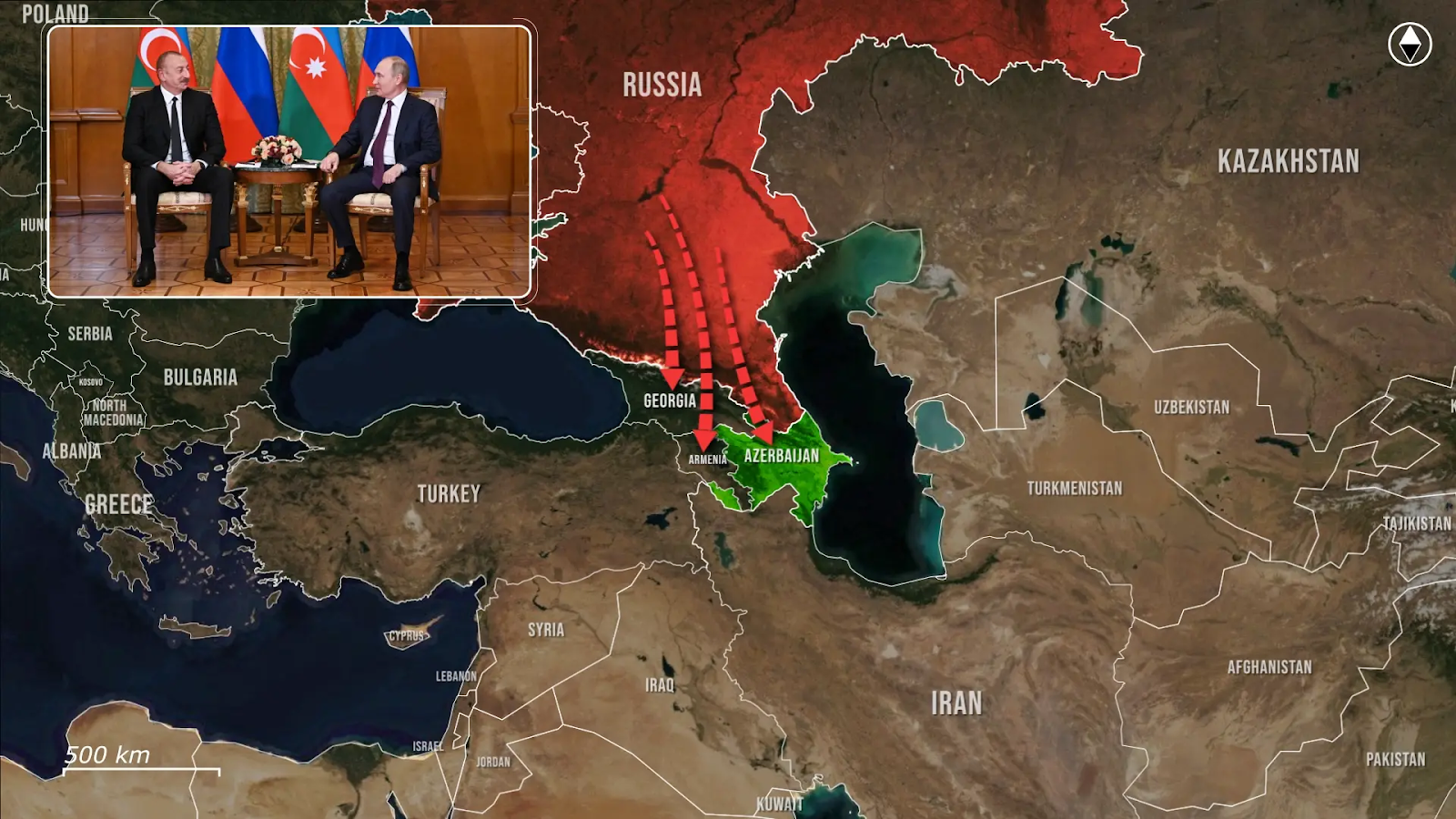
Overall, the crackdown on Wagner is not just a domestic legal move; it reshapes the regional landscape. By treating Russian mercenaries as criminals rather than veterans, Baku is signaling to the rest of the post-Soviet world that the old rules of Russian dominance no longer apply. Russia’s soft and hard power tools are being dismantled from within, and Azerbaijan is leading the way.
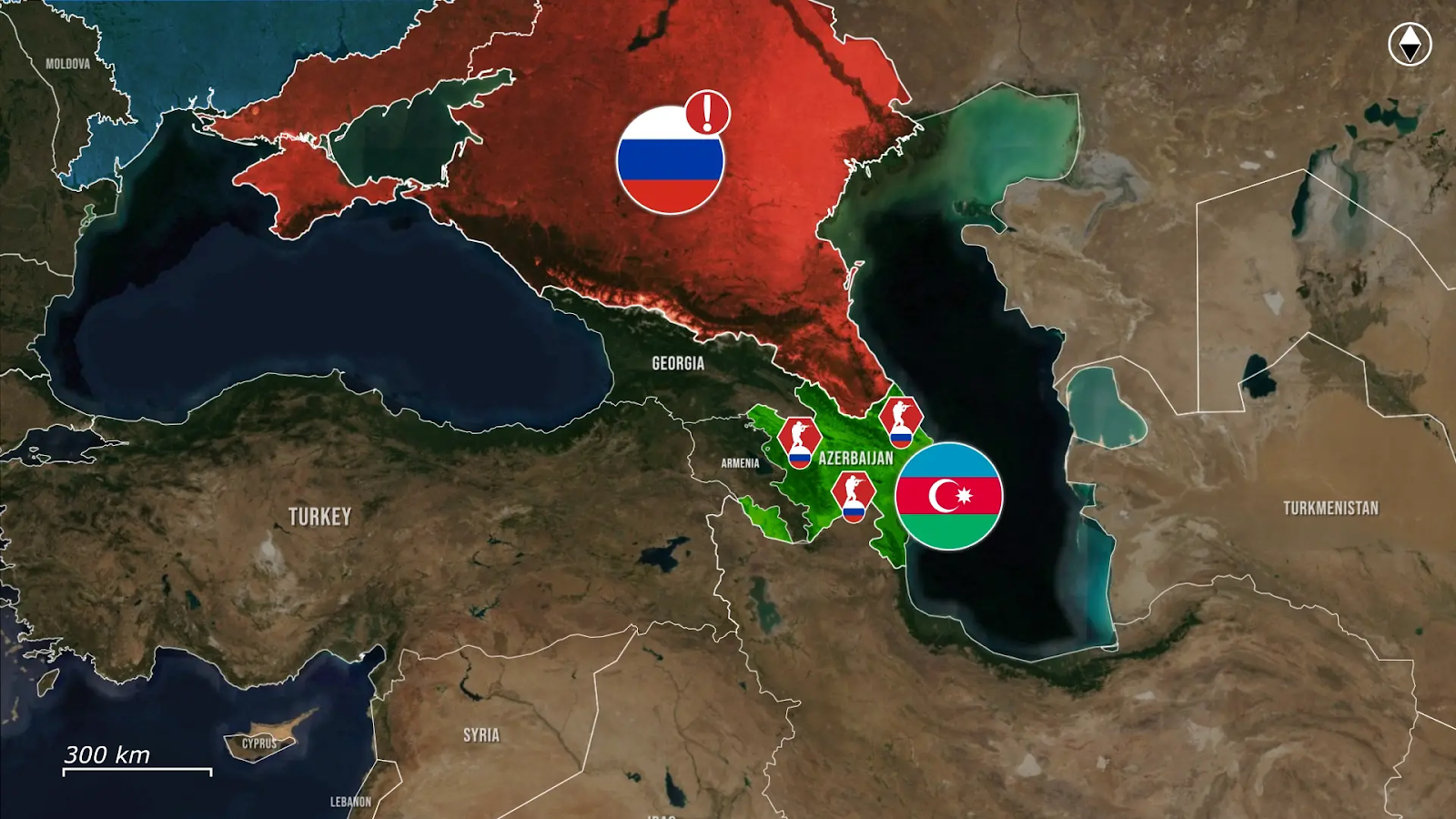
Today, the biggest news comes from Azerbaijan.
Here, the government has arrested Wagner fighters who fought for Russia in Ukraine, directly targeting the Kremlin’s most dangerous organization. It is a bold move that does not just reject Russian influence in the South Caucasus but actively begins to dismantle Moscow’s entire post-Soviet power network.

This is the first time a post-Soviet country has prosecuted its citizens for joining Wagner. The first two mercenaries, Ramil Aliyev and Ismayil Hasanov, had both served time in Russian penal colonies before being recruited into Wagner under Prigozhin’s Project-K and sent to fight in Ukraine. Both men had served time in Russian penal colonies before being recruited under Wagner’s Project-K, a prison pipeline organized by Yevgeny Prigozhin to fuel Russia’s war in Ukraine. The two Azerbaijanis are accused of using firearms and explosives in Ukraine, as well as attempting to recruit others to fight for Wagner.
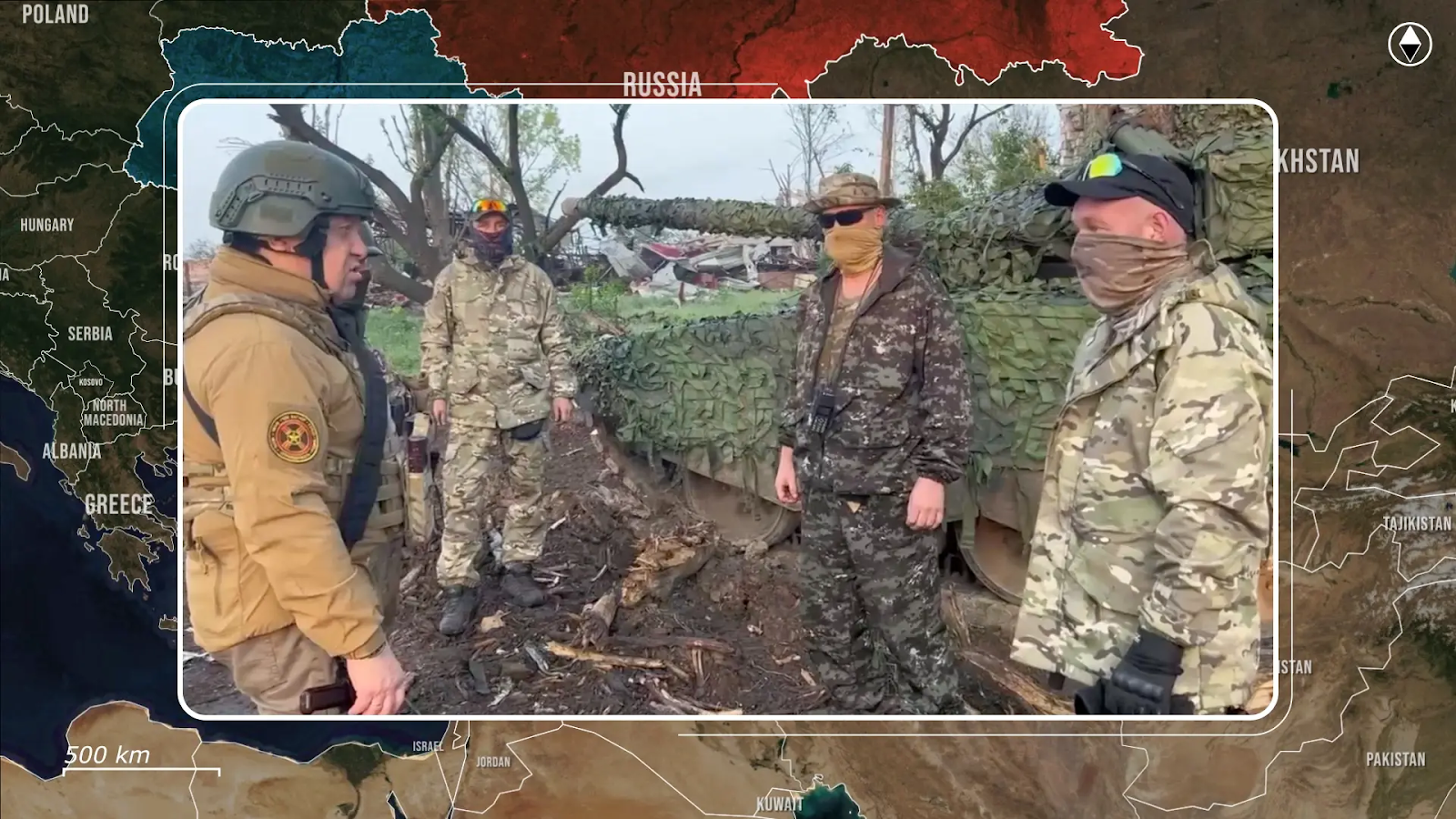
A court in Baku ordered them detained, applying criminal statutes typically used for mercenary or terror-related offenses. These charges go beyond domestic law; they are a warning to all former Wagner fighters: they will be treated not as veterans, but as war criminals.
The decision to prosecute Wagner fighters comes as part of a broader shift in Azerbaijan’s posture toward Moscow. Rather than quietly distance itself, Baku is now actively targeting Russian influence across multiple fronts: military, political, and informational. The arrests are not just about justice or legality, they are about cutting off Russian leverage. Project-K was one of Wager’s most controversial efforts, blending criminality with state-backed warfare. By going after these individuals now, Azerbaijan is effectively retroactively criminalizing its citizens’ involvement in Russia’s proxy structure.
This legal offensive follows Baku’s decision to label Sputnik-Azerbaijan a Russian intelligence front, accusing its staff of running information warfare campaigns and building pro-Kremlin influence networks inside the country.

While that episode focused on soft power, the Wagner arrests are something different: they mark the beginning of hard legal action against Russian hybrid operatives on Azerbaijani soil. No other country in the region has drawn such a hard legal line, making this a precedent-setting moment.
Diplomatic tensions have escalated in parallel, when a Russian delegation led by Emergency Situations Minister Aleksandr Kurenkov visited Baku in July carrying a diplomatic message from Vladimir Putin, President Illham Aliyev refused to meet them. That snub was deliberate and deeply symbolic, in the post-Soviet space, as Russia has traditionally relied on in-person meetings and backchannel diplomacy to maintain leverage.
But this time, Azerbaijan shut the door; the refusal to receive Putin’s envoy suggests that Baku no longer sees Russian diplomacy as useful or necessary. It also signals that Azerbaijan is prepared to let relations deteriorate further if Moscow keeps pushing.

In the meantime, Azerbaijan is strengthening ties with Ukraine in both practical and symbolic ways. Baku recently sent specialized demining equipment to Ukrainian forces, support that may appear modest on paper, but carries real strategic weight. It directly contributes to Ukraine’s ability to clear liberated areas, protect civilians, and prepare for counteroffensive operations. Azerbaijan is openly siding with Ukraine on key security issues, while simultaneously targeting Russia’s covert networks at home. And it is doing so without Western prompting, showing that Russia’s isolation is becoming self-reinforcing.

Behind all of this lies a deeper shift; Azerbaijan is no longer trying to balance between East and West. It is picking sides, and doing so with surgical precision. The prosecutions, media clampdown, and diplomatic snubs are part of a coherent policy aimed at dismantling Russia’s influence in the South Caucasus. For Moscow, this is not just a diplomatic headache; it is a strategic defeat, its once loyal partner is now helping Ukraine, rejecting backchannel envoys, and arresting Wagner fighters as criminals.

Overall, the crackdown on Wagner is not just a domestic legal move; it reshapes the regional landscape. By treating Russian mercenaries as criminals rather than veterans, Baku is signaling to the rest of the post-Soviet world that the old rules of Russian dominance no longer apply. Russia’s soft and hard power tools are being dismantled from within, and Azerbaijan is leading the way.

In our regular frontline report, we pair up with the military blogger Reporting from Ukraine to keep you informed about what is happening on the battlefield in the Russo-Ukrainian war.
You could close this page. Or you could join our community and help us produce more materials like this.
We keep our reporting open and accessible to everyone because we believe in the power of free information. This is why our small, cost-effective team depends on the support of readers like you to bring deliver timely news, quality analysis, and on-the-ground reports about Russia's war against Ukraine and Ukraine's struggle to build a democratic society.
Become a patron or see other ways to support.
-
Euromaidan Press
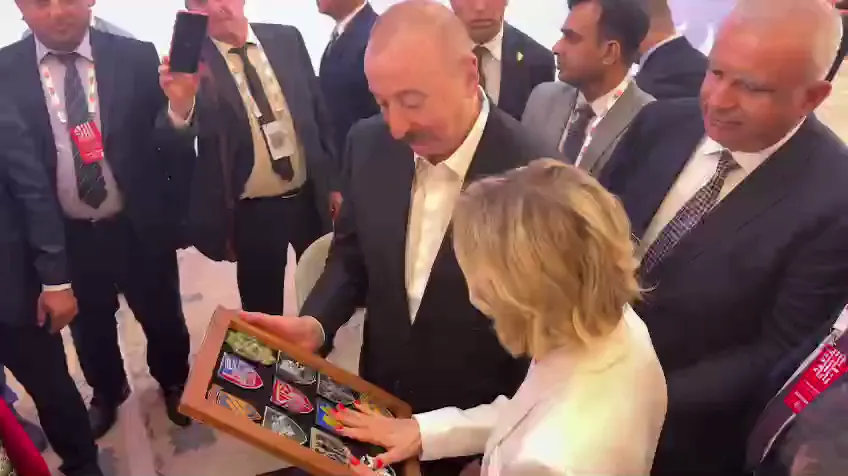
-
“Most valuable thing we have”: Ukrainian journalist gifts military chevrons to Azerbaijan president Aliyev
Ukrainian journalist Olena Kurbanova presented Azerbaijan President Ilham Aliyev with chevrons from Ukrainian Armed Forces units during a media forum in Shusha. During the meeting, Kurbanova thanked Aliyev for the restoration of Nagorno-Karabakh before presenting him with the collection of military patches from various Ukrainian Armed Forces brigades. “This is the most valuable thing — chevrons of our defenders. Because our army is the only guarantee of security for Ukraine. The most valuable t
“Most valuable thing we have”: Ukrainian journalist gifts military chevrons to Azerbaijan president Aliyev

Ukrainian journalist Olena Kurbanova presented Azerbaijan President Ilham Aliyev with chevrons from Ukrainian Armed Forces units during a media forum in Shusha.
During the meeting, Kurbanova thanked Aliyev for the restoration of Nagorno-Karabakh before presenting him with the collection of military patches from various Ukrainian Armed Forces brigades.
“This is the most valuable thing — chevrons of our defenders. Because our army is the only guarantee of security for Ukraine. The most valuable thing we have,” Kurbanova told Aliyev, according to the YouTube footage.
Aliyev responded by thanking the Ukrainian journalist: “Thank you for what you are doing. Keep up the good work.”
The exchange occurred against the backdrop of Aliyev’s previous statements supporting Ukraine’s territorial integrity. The Azerbaijan president advised Ukrainians never to agree to occupation of their territories, drawing parallels with the Nagorno-Karabakh conflict.
“Never agree to occupation. That’s the main advice. This is what we did,” Aliyev said at the Shusha Media Forum when responding to questions from Ukrainian journalist Dmitry Gordon.
The Azerbaijan president recalled that the UN Security Council had adopted four resolutions demanding the withdrawal of Armenian forces from Nagorno-Karabakh, but the international community failed to achieve their implementation.
“We decided that we would create new realities, and you would have to accept them. That’s what happened,” Aliyev said, advising Ukrainians not to give up and do the same.
The diplomatic gesture comes as Azerbaijan-Russia relations have deteriorated significantly over the past year. In December 2024, an Azerbaijan Airlines civilian aircraft crashed in Kazakhstan after being allegedly hit by Russian air defense systems in Grozny during a Ukrainian drone attack on the city. The incident killed 38 people, with Baku holding Moscow responsible.
Relations further soured in June 2025 when brothers Ziyaddin and Hussein Safarov, considered main suspects in the murder of businessman Yunis Pashayev, died during mass searches and detentions of Azerbaijanis in Yekaterinburg. Azerbaijan’s Foreign Ministry demanded an investigation, accusing FSB officers of “brutal murder” of the republic’s nationals and delivering a protest note to Russia’s ambassador in Baku.
The tensions escalated with a series of mutual detentions and arrests in both countries. On 16 July, a Yekaterinburg court sent Mutvali Shikhli’s son, head of the Ural Azerbaijani diaspora, to pretrial detention on charges of using violence against a Russian government representative.
Azerbaijan’s control over Nagorno-Karabakh was established in September 2023 when Baku launched what it called “anti-terrorist measures” to “restore constitutional order.” The unrecognized Nagorno-Karabakh capitulated on 20 September 2023, after Azerbaijan claimed to have “completed all tasks of the anti-terrorist operation” and “restored sovereignty” within 24 hours.
On 30 September 2023, Azerbaijan recognized Armenia’s territorial integrity. The unrecognized Nagorno-Karabakh ceased to exist on 1 January 2024.
Read also
-
NYT > U.S. News

-
Justice Dept. to Move Ahead With Bribery Case Against Cuellar
The decision to sustain the prosecution of the Texas Democrat stands in contrast to the department’s decisions to drop or downgrade investigations of Trump allies or those he deems politically useful.
Justice Dept. to Move Ahead With Bribery Case Against Cuellar

© Mark Schiefelbein/Associated Press
-
The Kyiv Independent

-
Russian propaganda media Sputnik shuts down operations in Azerbaijan amid tensions
Russian state-funded propaganda media outlet Sputnik will cease operations in Azerbaijan, Russia Today media group CEO Dmitry Kiselyov said on July 3, according to the Russian state news agency RIA Novosti."We regret to say that, as of today, the conditions for Sputnik Azerbaijan to continue its activities in this country are not in place," Kiselyov said.The move comes amid a major deterioration in Russian-Azerbaijani relations.Kiselyov's comments followed the detention of several Sputnik Azerba
Russian propaganda media Sputnik shuts down operations in Azerbaijan amid tensions

Russian state-funded propaganda media outlet Sputnik will cease operations in Azerbaijan, Russia Today media group CEO Dmitry Kiselyov said on July 3, according to the Russian state news agency RIA Novosti.
"We regret to say that, as of today, the conditions for Sputnik Azerbaijan to continue its activities in this country are not in place," Kiselyov said.
The move comes amid a major deterioration in Russian-Azerbaijani relations.
Kiselyov's comments followed the detention of several Sputnik Azerbaijan employees by Azerbaijani police on June 30. Authorities said two of the detainees were operatives of Russia's Federal Security Service (FSB), prompting a formal protest from Moscow.
Kiselyov called the charges "far-fetched," saying the staff had worked to "develop cooperation between Azerbaijan and Russia." He added that legal action would be taken to defend them.
Sputnik, a key pillar of the Kremlin's global propaganda network, has long been accused by Western governments and media watchdogs of spreading disinformation and pro-Russian narratives.
These developments follow a deadly June 27 operation in Russia's Yekaterinburg, where Russian security forces killed two Azerbaijani nationals and injured several others in a raid linked to a 2001 murder case.
On June 28, Azerbaijan's Foreign Ministry issued a rare public rebuke, calling the operation "ethnically motivated" and part of a "systematic pattern" of unlawful treatment of Azerbaijani nationals in Russia.
The diplomatic rupture deepened further after Azerbaijani authorities arrested eight Russian citizens the next day, presenting them in court handcuffed and visibly injured. They were accused of participating in organized crime, cyberattacks, and drug smuggling from Iran.
The closure of Sputnik's bureau marks a new low in relations between the two former Soviet states, which have seen escalating tensions despite longstanding ties.
 The Kyiv IndependentTim Zadorozhnyy
The Kyiv IndependentTim Zadorozhnyy
-
The Kyiv Independent
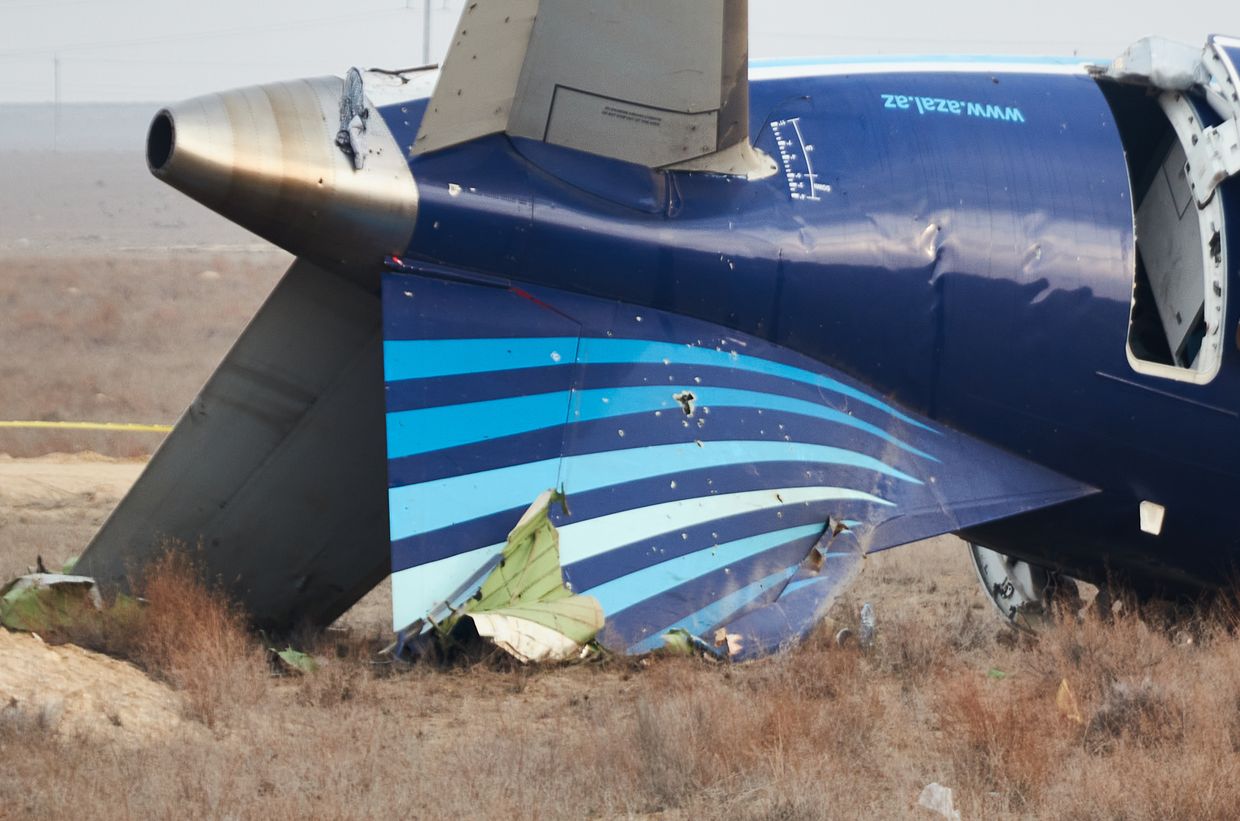
-
Russian officer admits to downing Azerbaijani airliner in reported leak
A person claiming to be a Russian officer said he had received an order to open fire at an aerial target last December that turned out to be an Azerbaijani airliner, Azerbaijani news outlet Minval reported on July 1, citing audio and a written statement it had received.An Embraer 190AR plane operated by Azarbaijan Airlines crashed in Kazakhstan on Dec. 25, 2024, after coming under fire over Grozny, Chechnya. Thirty-eight people were killed.Azerbaijani authorities laid blame on Russia, with an in
Russian officer admits to downing Azerbaijani airliner in reported leak

A person claiming to be a Russian officer said he had received an order to open fire at an aerial target last December that turned out to be an Azerbaijani airliner, Azerbaijani news outlet Minval reported on July 1, citing audio and a written statement it had received.
An Embraer 190AR plane operated by Azarbaijan Airlines crashed in Kazakhstan on Dec. 25, 2024, after coming under fire over Grozny, Chechnya. Thirty-eight people were killed.
Azerbaijani authorities laid blame on Russia, with an investigation pointing to a Russian Pantsir-S1 air defense system mistakenly targeting the plane amid a reported Ukrainian drone attack.
Minval wrote it had received three audio recordings, an anonymous letter, and an explanatory note by a man signed as Captain Dmitry Paladichuk, a Russian air defense crew captain who claims to have relayed the order to shoot down the plane.
In the purported explanatory note, Paladichuk said he had no reliable means of communication with the Russian military command other than a cell connection. A radar detected a target at 8:11 a.m. local time, after which Paladichuk was reportedly ordered to destroy the aircraft — which was not visible due to thick fog — over the phone.
The captain claimed that after the first projectile missed the target, he had given the order to fire again. Paladichuk did not explicitly name the Azerbaijani flight in his explanatory letter.
Minval wrote that it could not confirm the authenticity of the written statement but could do so for the three leaked voice messages, which also confirmed the command to shoot down the plane and the subsequent damage.
Russian independent news outlets Agentstvo and the Insider confirmed Paladichuk's identity as an air defense officer who served in various units, including the 14th Army of the Air Force and Air Defense in Novosibirsk.
The Insider also wrote that the note appears to be authentic, and pointed out that the speed of the plane, revealed in the leaked materials, shows that the Russian command must have known the target was not a drone.
The incident led to a public clash between Azerbaijan and Russia, otherwise close political and economic partners. Azerbaijani President Ilham Aliyev accused Moscow of suppressing evidence and criticized his Russian counterpart, Vladimir Putin, for not openly admitting guilt.
Putin offered condolences for the incident taking place in the Russian airspace, but stopped short of admitting Russian responsibility.
New details of the case emerge just as Russian-Azerbaijani relations sour yet again. Over 50 Azerbaijanis were detained as part of a murder investigation in Yekaterinburg on June 27, two of whom died in custody.
Baku called their deaths "ethnically motivated" and "unlawful" killings. A few days later, Azerbaijani authorities raided an office of the Russian propaganda outlet Sputnik in Baku, detaining who they say are Russian spies.
 The Kyiv IndependentMartin Fornusek
The Kyiv IndependentMartin Fornusek
-
The Kyiv Independent

-
Azerbaijan detains alleged Russian spies as relations with Moscow nosedive
Editor's note: The story was updated after the Sputnik news agency disclosed the names of those detained in Baku.Azerbaijani police detained two alleged agents of Russia's Federal Security Service (FSB) on June 30 following searches at the Baku office of the Russian state-controlled news agency Sputnik, the Azerbaijani news outlet Apa.az reported.Sputnik later elaborated that Igor Kartavykh, chief editor of Sputnik Azerbaijan, and Yevgeniy Belousov, managing editor, had been detained in Baku. Th
Azerbaijan detains alleged Russian spies as relations with Moscow nosedive

Editor's note: The story was updated after the Sputnik news agency disclosed the names of those detained in Baku.
Azerbaijani police detained two alleged agents of Russia's Federal Security Service (FSB) on June 30 following searches at the Baku office of the Russian state-controlled news agency Sputnik, the Azerbaijani news outlet Apa.az reported.
Sputnik later elaborated that Igor Kartavykh, chief editor of Sputnik Azerbaijan, and Yevgeniy Belousov, managing editor, had been detained in Baku. The agency called the allegations that the detainees were FSB agents "absurd."
The move comes amid a major deterioration in Russian-Azerbaijani relations that followed the detention of over 50 Azerbaijanis as part of a murder investigation in Yekaterinburg on June 27. Two people died during the detentions, and three others were seriously injured.
The searches in the office of the Russian propaganda media outlet, which operates as a local branch of Russian state news agency Russia Today (RT), began on June 30.
The Russian propagandist Margarita Simonyan, editor-in-chief of Russia Today, said that representatives of the Russian embassy in Baku were on their way to Sputnik's office. Sputnik employees were offline and probably did not have access to phones, she added.
According to Simonyan, some of Sputnik's employees were Russian citizens.
The Azerbaijani government ordered in February that the activities of Sputnik's Azerbaijani office be suspended.
The authorities said that the move was intended to ensure parity in the activities of Azerbaijan's state media abroad and foreign journalists in the country. This meant that the number of Sputnik Azerbaijan journalists working in Baku was to be equal to the number of journalists of the Azerbaijani news agency Azertadzh in Russia.
As a result, Sputnik Azerbaijan had to reduce its staff from 40 people to one but refused to do so and continued to operate despite the Azerbaijani government's decision, according to Apa.az.
As the Russian-Azerbaijani relations deteriorate, Azerbaijan has cancelled all planned cultural events hosted alongside Russian state and private organizations, the country's Culture Ministry announced on June 29.
The announcement followed the deaths of two Azerbaijani citizens during police raids in the Russian city of Yekaterinburg.
Azerbaijan’s Foreign Ministry said on June 28 that Ziyaddin and Huseyn Safarov had died during a raid carried out by Russian authorities. Azerbaijan called the killings "ethnically motivated" and "unlawful" actions.
Baku called for the perpetrators to be brought to justice and said it expected Moscow to conduct a comprehensive investigation into the incident.
In the meantime, the Russian Foreign Ministry said that the detentions were carried out as part of an investigation into serious crimes. Foreign Ministry spokesperson Maria Zakharova claimed that these were cases related to murders committed in 2001, 2010, and 2011.
 The Kyiv IndependentKollen Post
The Kyiv IndependentKollen Post
-
The Kyiv Independent
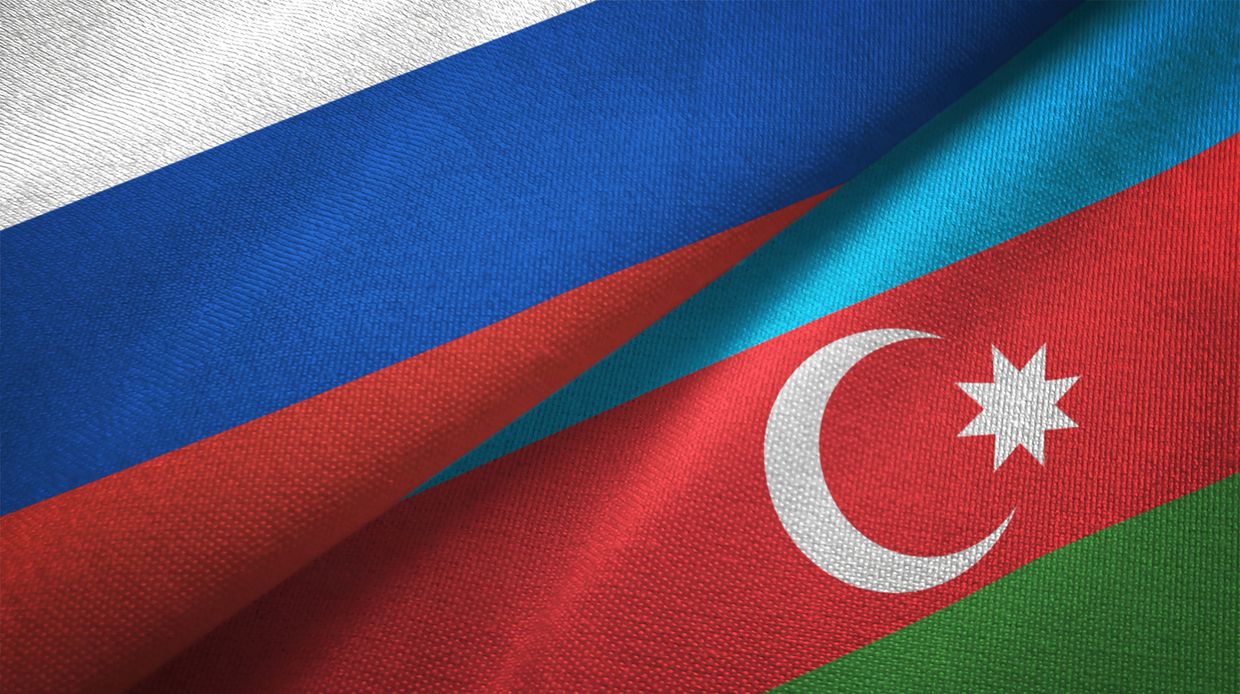
-
Azerbaijan cancels Russian events over 'extrajudicial killings' of 2 citizens in Russia's Yekaterinburg
Azerbaijan has cancelled all planned cultural events hosted alongside Russian state and private organizations, the country's Culture Ministry announced on June 29, over the deaths of two Azerbaijani citizens during police raids in the Russian city of Yekaterinburg.Azerbaijan’s Foreign Ministry said on June 28 that Ziyaddin and Huseyn Safarov died during a raid carried out by Russian authorities. Azerbaijan called the killings "ethnically motivated public and deliberate unlawful actions" and said
Azerbaijan cancels Russian events over 'extrajudicial killings' of 2 citizens in Russia's Yekaterinburg

Azerbaijan has cancelled all planned cultural events hosted alongside Russian state and private organizations, the country's Culture Ministry announced on June 29, over the deaths of two Azerbaijani citizens during police raids in the Russian city of Yekaterinburg.
Azerbaijan’s Foreign Ministry said on June 28 that Ziyaddin and Huseyn Safarov died during a raid carried out by Russian authorities. Azerbaijan called the killings "ethnically motivated public and deliberate unlawful actions" and said that Russia's action have "recently taken on a systematic nature."
The raid was reportedly conducted amid an investigation into an unsolved 2001 murder. Several other people were injured in the raid and a total of nine individuals were detained.
In a comment to Azerbaijani public broadcaster ITV, Sayfaddin Huseynli, the brother of the deceased, claimed that the two men were tortured to death "without any trial or investigation, despite their innocence."
The official cause of death was not immediately known.
As a result of the incident, Azerbaijani state media also reported that the government had cancelled a planned visit by Russian Deputy Prime Minister Alexey Overchuk, stating that the country "does not consider it appropriate under the current circumstances for Overchuk or any other official representative of Russia to visit."
Tensions between Baku and Moscow have continued to sour in recent months since Russia's downing of an Azerbaijan Airlines plane that killed 67 passengers. Since then, Azerbaijani lawmaker have blamed Russia for February cyberattack, and the country's President Ilham Aliyev skipped out on attending Russia’s Victory Day parade in Moscow in May.
As relations dwindle, Ukraine has sought to build relations with Baku. Ukraine’s Foreign Minister Andrii Sybiha also visited Azerbaijan in May.
In February, Aliyev's office announced it was delivering $1 million in humanitarian aid to Ukraine in the form of electrical equipment to support the country's energy grid amid Russian attacks.
Azerbaijan's primary regional foe, Armenia, also a historic ally of Moscow, has also effectively severed relations with the Kremlin.
Earlier this year, Yerevan formally signed a law to begin Armenia's accession process to the European Union. The decision comes growing rift with Russia accelerated after the Kremlin failed to prevent Azerbaijan's September 2023 offensive in Nagorno-Karabakh, leading to the mass exodus of the region's Armenian population.
 The Kyiv IndependentThe Kyiv Independent news desk
The Kyiv IndependentThe Kyiv Independent news desk